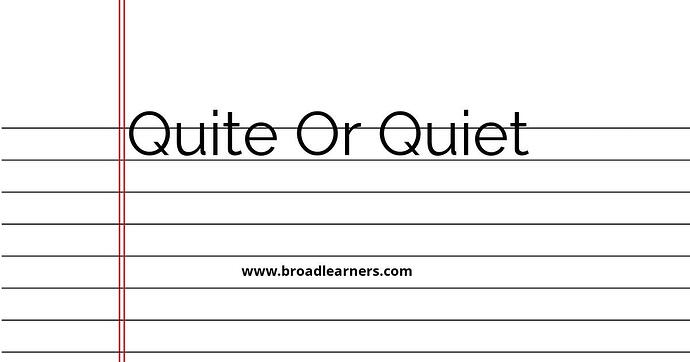'Quite' and 'quiet' are commonly confused words in English grammar. Understanding the difference between 'quite' and 'quiet' is important to use them correctly in written and spoken English.
'Quite' is an adverb that means 'to a certain extent' or 'fairly'. It is used to emphasize or intensify the degree or extent of something.
'Quiet' is an adjective that means 'making little or no noise' or 'having a calm and peaceful atmosphere'.
Let's take a closer look at the meanings and usage of 'quite' and 'quiet'.
| 'Quite' | 'Quiet' |
|---|---|
| The word 'quite' is used as an adverb to emphasize or intensify the degree or extent of something. | The word 'quiet' is used as an adjective to describe something that makes little or no noise or has a calm and peaceful atmosphere. |
|
|
To remember the difference between 'quite' and 'quiet', it can be helpful to remember that 'quite' is an adverb used to emphasize or intensify, while 'quiet' is an adjective used to describe something that is calm or makes little noise.
Here are some examples of correct usage:
- She is quite intelligent. (emphasizing the degree of intelligence)
- The baby is quiet now. (describing the absence of noise)
- I quite like this song. (indicating a moderate level of liking)
- The park was quiet and peaceful. (describing the atmosphere)
Remembering the correct usage of 'quite' and 'quiet' will improve your grammar and communication skills.
